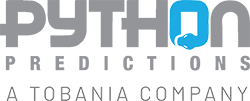
I screw up. You do too. Hopefully not all the time, but it happens to everyone at some point. But those dark clouds certainly have their silver linings – in those difficult times when things go wrong and when the sh*t hits the fan, we have the opportunity to learn and grow. Provided that we get correct feedback from those who we value.
At our Brussels-based data team, it is the time of the year again to provide extensive collective feedback to each other. The funny thing is, we provide feedback today in the exact same way as when Wouter and I hired our first team member back in 2007. We’re a little bigger now, but the essential elements have survived:
We make the time – Giving valuable feedback requires time. Two times per year, we sit down with every single team member during a session of two to three hours. That is long. In those moments, we make sure we’re uninterrupted, undistracted and in a safe and comfortable setting.
We let our employees speak first – We always start the session by letting our team members express their opinions about what went well and what went more difficult during the last period. We discuss their projects, their work, their interactions, their clients, their personal challenges, their aspirations and anything else they think is relevant from their point of view.
It’s teamwork – Next, we offer them insights into how others perceived their performance. To prepare this, our talent manager Elien chases every team member to provide their detailed feedback before the feedback session starts. If something is not clear, she asks for more details to make sure we understand everything in detail. And obviously, we regularly survey our clients to provide their views as well – and we engage in detailed discussions to understand their feedback.
It’s mutual – Every team member provides feedback about every other team member, so I’m a little embarrassed today to admit it took me ten years to realize I could also benefit from the system. But I fully do now. And we always try to understand what happened and why. That is why the sessions are still labeled “2-ways”, representing our commitment to see this as a two-way feedback process.
We leave no stone unturned – We talk about everything we notice, and this usually provides a good balance between (usually many) positive points and compliments and the things to improve. We talk about everything: analytical skills, technical skills, communication skills, business skills, ownership, proactive attitude, involvement and leadership. We have a low tolerance for gossip in the team, so we almost always favor sharing feedback – even when difficult – to provide the opportunity to reply to our observations and provide context.
No surprises – In case of the slightest doubt, we provide feedback immediately. This is quite important not only to handle a situation immediately but also to avoid misunderstandings and frustrations within the team. It is absolutely crucial that the receiver of the feedback is allowed to express his/her point of view as soon as possible to understand all details and context of the situation. As such, our feedback session is never a surprise, but a detailed wrap-up of all insights collected during the past months.
We always end with questions – Since 2007, we have three key questions that come back in every feedback session:
- Are you still enthusiastic about working with our team? YES!
- Do you get along with everyone? YES!
- Can you be yourself on our team? YES!
Related to this last point, we consider it extremely important that people don’t have to put on a mask when they are at work. We always felt that that was important to feel genuinely appreciated at work. Recently, this concept was crystallized best in the book ‘Reinventing organizations’ by Frederic Laloux.
We plan the road ahead – At the end of the session, the most important step is to plan the road ahead together. We listen carefully to the ambitions and interests of our team members and discuss potential next steps, new challenges, new clients, potential new trainings and everything else that helps our team members grow towards their best possible selves.
So why do we spend so much time? Our main management mission is to create an environment where everyone feels genuinely appreciated. This involves providing and receiving positive feedback, which gives energy, recognition and involvement. But it also involves providing and receiving constructive feedback in full transparency and with full respect. I personally consider our feedback process the most important component of our company culture.
Want to join us? We’re always looking for talented data experts. Get in touch with our Talent Manager Elien Catthoor to find out whether we match!
* With gratitude to the team for their feedback on this article 🙂



